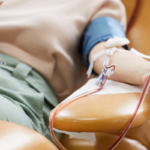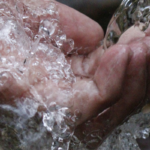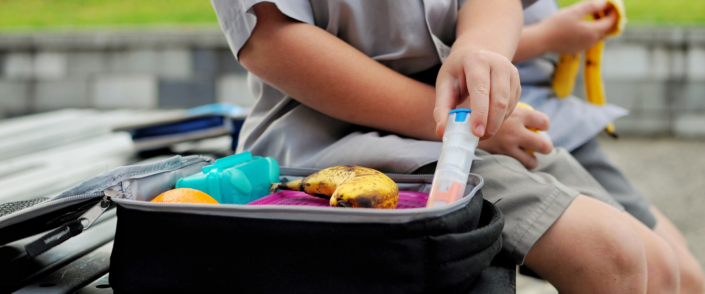As schools have started in January, it is important that CPR and First Aid training is in place to ensure a safe return.
It is vital that the school staff receive full CPR and First Aid training and are confident and are competent and most importantly, are up-to-date with their training.
At Survival CPR we make it so easy for school teachers to learn CPR and First Aid, as our instructors come to the school to teach, in this way, everyone receives the same training and is consistent in how to handle an emergency at the school. It is important that all staff, including school grounds staff and supervisors receive professional training. In this way they are confident to give immediate first aid to someone who is choking, or experiencing an anaphylactic reaction.
It is vital that medication is only administered by staff competent to give it, you must discuss this independently with the school your child attends. In addition, there must be written medical instructions and consent from the parent or legal guardian.
There are many children who attend school with chronic and complex medical conditions. It is therefore essential that school staff work with parents, so that these children are given all the support they need.
Please read here what topics are covered in our Teacher CPR and First Aid Courses.
These are some of the emergencies that children with medical conditions can encounter:
Anaphylaxis
Anaphylaxis is an extremely severe allergic reaction. Reactions usually begin within minutes and progress rapidly, however, they can occur up to 2-3 hours after exposure. In addition, exercise can initiate symptoms a while after exposure to an allergen. Common allergens include food and insect stings. Importantly, the rise of food allergies poses a significant risk for pupils in schools.
Statistics show that children who have a food allergy have reactions that can happen at school. Anaphylaxis can proceed rapidly. In turn, failure to administer adrenaline promptly has been associated with fatalities.
It is really important that parents have ordered additional adrenaline injectors. In addition, teachers must know what to do in case of a medical emergency.
Seizures
A seizure is the medical term for a fit or convulsion. One in twenty people will have a seizure at some point in their lives.
Firstly, electrical activity happens constantly in our brains and controls movements and bodily functions. If there is a disruption to the blood supply to the brain, it can trigger a seizure causing uncontrolled movement of the eyes, limbs and body.
Febrile convulsions can happen to five out of every 100 children under the age of six years old and so are not uncommon.
These are seizures caused by a rising temperature when they are unwell. As a result, seizures are extremely frightening, however these ones are rarely life threatening. Moreover, your child is likely to grow out of them by the time they are about 5 years old. It is important to receive medical advice from your family doctor if your child experiences a seizure, to discover what caused it.
Our instructors are highly experienced medical professionals with experience in ICU, Trauma and Paediatric Trauma. Our courses cater for groups or individuals at our venue or yours.

Winter Safety Guide
Winter’s arrival brings with it a desire to snuggle up and stay warm in the comfort of our homes. Fireplaces, gas and electrical blankets, heaters, and hot water bottles become our trusted companions during these chilly months. However, it’s crucial to prioritize safety to prevent potential accidents or hazards. In

Sudden Infant Death Syndrome (SIDS)
Sudden Infant Death Syndrome, or SIDS, is a heartbreaking tragedy that affects thousands of families each year. As a parent, the thought of losing your child to SIDS can be overwhelming and scary. But there are steps you can take to reduce the risk of SIDS and be prepared for

World Blood Donor Day 2023: “Give blood and keep the World beating”
Did you know that blood donation is one of the most selfless and impactful things you can do for your community? It’s true! And in South Africa, the need for blood donors is always high. That’s why today, I want to share with you some of the many reasons why

First Aid for Burns – a must read for every parent
Sister Catherine Rodwell sheds light on the right way to handle burns, be it in children or adults. It’s crucial to be aware of the proper procedure to not worsen the burn’s impact. From 6-12 May, National Burns Awareness Week is being observed. In continuation of our conversation with “Mommy

A mother recounts her traumatic experience
We are very grateful for this mommy who wanted to share her traumatic story with us, so that other parents can learn how quickly accidents can happen. Please note that photo’s can be triggering. We are very grateful for this mommy who wanted to share her traumatic story with us,

The Leading Cause of Accidental Poisoning
As parents or caregivers, keeping children safe is our top priority. However, despite our best efforts, accidents can happen. One of the most common accidents that can be prevented is unintentional poisoning from medication. It’s important to understand that medicines are not sweets and should be treated with care. In

Head Injuries in Children
The World Head Injury Awareness Day falls on March 20th every year and it looks at the number of people who suffer from a mild bump on their head to severe brain injury. The purpose of this day is to remind us of how we could reduce accidents and brain

Top tips for staying healthy
Here are some tips for parents to help keep their children healthy during the colder seasons. Practice good hygiene: Encourage your children to wash their hands frequently and cover their mouths when coughing or sneezing. This can help prevent the spread of germs and illnesses. Dress appropriately for the weather:

How CPR saves lives
Knowing CPR can save someone’s life, our trauma expert, owner and founder of Survival CPR, Sister Catherine Rodwell, explains what CPR is, who can do and why it is so important that anyone (especially those in any caregiving role such as a parent or nanny) should take a course and keep


